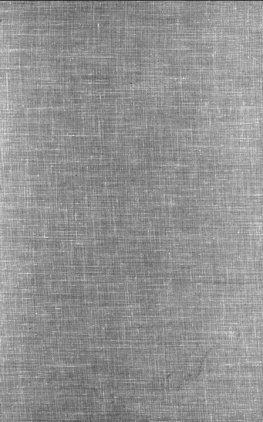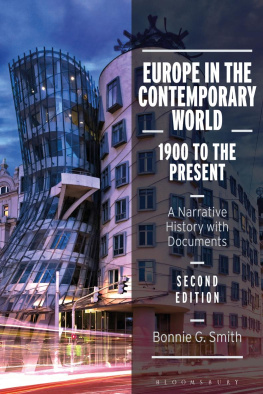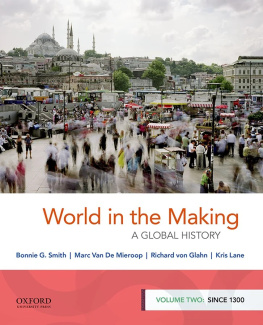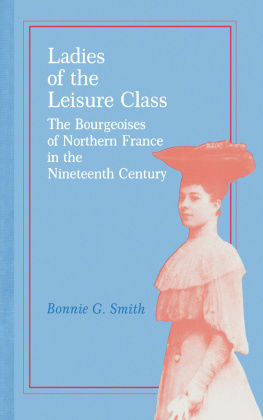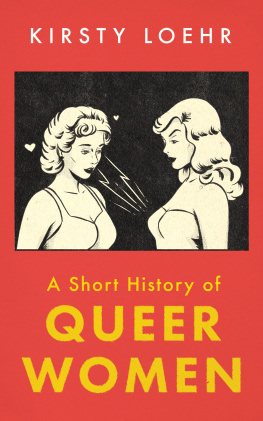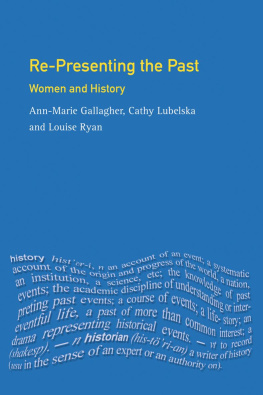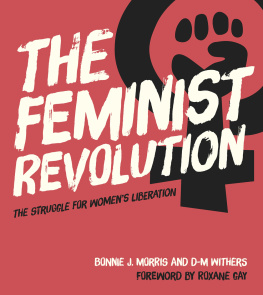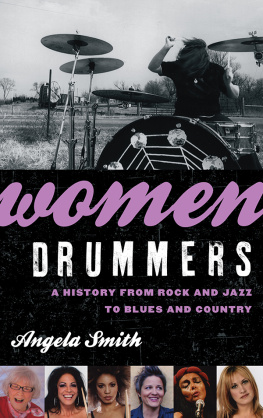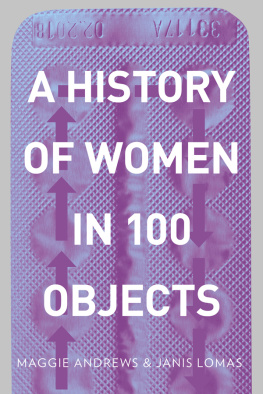The Gender of History
The Gender of History
Men, Women, and Historical Practice
Bonnie G. Smith


For Natalie Zemon Davis and Donald R. Kelley
Acknowledgments
After listening to an oral presentation of the section in this book that deals with male historians' fantasies, David Schalk of Vassar College reported he had once had a vision in which Clio swooped into his presence and predicted he would never make it as a scholar. Many years before this confession, David had presented me with two volumes by Lucy Maynard Salmon-a prominent character in these pages. Because The Gender History has taken so long to complete, generous colleagues like David have had the opportunity to make Nsonderful contributions fbr nearly two decades.
Students and faculty at Rutgers and the University of Rochester provided a host of ideas and were extraordinary colleagues. In particular I thank Mary Young, Stewart Weaver, Bette London, Brenda Meehan, Thomas DiPiero, and Lynn Gordon for sharing their work or providing thoughtful critiques of my own. Colleagues at Rutgers are at the forefront of investigations in the field of gender, and many deserve thanks for their personal and intellectual support, especially Suzanne Lebsock, Alice Kessler-Harris, Dee Garrison, John Gillis, Jennifer Jones, Belinda Deborah White, Barbara Balliet, and Mary Hartman. Graduate students at both institutions were important critics. Among them, Todd Shepard also assisted with research, and Tamara Matheson and Scott Glotzer helped with final details.
Colleagues at other institutions had a variety of responses to this hook as a work-in-progress. In particular I thank fellows at the Shelby Cullum Davis Center in 1992-1993 and faculty in the Department of History at Princeton, especially Elizabeth Lunbeck, Peter Brown, Christine Stansell, Philip Nord, and Suzanne Marchand, fir their support and generous help. Ann-Louise Shapiro, Jo Burr \targadant, Isabel Stephen Kaplan, Joan Scott, and Elizabeth Faue provided acute and extensive comments on various segments. Bcate Popkin tipped me off to boys and fighting; Margaret to complexities in de Stael; Judith Bennett to medievalist women. My arguments were also sharpened through my exchanges with European colleagues, including Gisela Bock, Maria Greyer, Mineke Bosch, Francisca de Josine Blok, Berteke Waaldijk, Janet Sondheimer, Constance Blackwell, and Christiana Klapisch. The American Council of Learned Societies, the National Humanities Center, and the John Simon Guggenheim Foundation provided crucial fellowships.
Portions of this hook were preciously published, in somewhat different form, by the. Historical Review, French Historical Studies, History and Theory, the History q/ Education Quarterly, and Brepols, S.A. (Belgium).
Joyce Seltzer and Maria Ascher of University Press gave the manuscript expert editing. I am extremely grateful for their encouragement, for the many improvements they made in the text, and for the many ideas they provided. Joyce Seltzer also found two anonymous critics whose comments were invaluable.
I thank Susan Kingsley Kent, Karen Ordahl Kupperman, and Joel J. Kupperman for ideas that shaped specific sections. Beyond that, they know how I treasure each of' them and their friendship. Honors Sharrer and Perez Zagorin, loyal friends and charming companions, nudged the manuscript toward completion. Patience 11. Smith contributed important insights to the material on trauma and " riting. She, John R. Kcllev, and Patrick W. Smith have supported my work beyond what anyone has a right to expect-even of one's faniily.
This hook took shape in my mind as I witnessed the force of historiographic dialogues over several decades. Early in the 1970s, Natalie Lemon Davis gave a pioneering lecture about women historians and some of the men who supported them. Since then, her gift for dialogical engagement has advanced the gendering of historiography, as it has advanced so much other historical scholarship. Natalie Davis and Donald R. Kelley discuss historiography together has been a further source of dialogical appreciation. And in still another dialogue, Donald Kelley has proffered endless support, bountiful information, and patient correction to the historiographic detail presented here. In the spirit of dialogue, and as a token of my gratitude for the inspiration they have given me, this hook hears a twofold dedication.
Contents
The Gender of History
Introduction
Gender and the Mirror of History
I am not partisan ... Why? Because in history I see nothing but history.
-Lucien Feb%re, Combats pour
This book inserts the term "gender" into an account of historiography in the Western It proposes that the development of modern scientific methodology, epistemology, professional practice, and writing has been closely tied to evolving definitions of masculinity and femininity. In so doing, it seems to go against the grain of professionalism itself: for more than a century and a half historians have prided themselves on the way in which their training allows them to overcome contingencies of religious creed, national origin, class, race, ethnicity, and gender through scrupulous adherence to the scientific method. When people's biases do appear, historians point these out and correct them in order to come as close as they can to "value-free" science. Although their personal lives may be very much influenced by issues of gender, their methodology helps them arrive as close as humanly possible to an ungendered historical truth. Only bad history would work to promote a religious, racialized, or class-based version of the past that flew in the face of accepted evidence.
Changes in the profession since the early 1970s have been based on these beliefs. Trained in scientific methods, historians of both women and people of color have assumed that their scholarship would eventually fit into the field of history- as a whole. Their findings fill out the picture, making the scholarship of the past finally truthful because more complete and up-todate. Of course, many have also believed that ingredients such as periodization would change as matters important to women displaced men's events, and that the cast of historical characters and many traditional interpretations would alter too. But the profession's rationality and fairness, it was thought, would ultimately allow the findings of women's history and the accomplishments of women historians their full influence and dignity in the academy. Meanwhile, some male historians welcomed the arrival and development of women's history and, later, gender history as a corrective.2 When, in the mid-1980s, one prominent social historian announced that historical research about women had gone far enough and should stop, it was in the belief that history's claims to lack of bias could he vitiated by an excess of such information. The history of women and blacks, it was said, would politicize the field. Or these subdisciplines-being "sexy, fashionable, and hot"-could undermine the truth value of real history by exposing it to influences (such as ideology and rampant market forces) that operated outside professional standards for what was important.;
We hold such beliefs because we trust in the mirror of history-a metaphor that has long been indicative of how scholars in the West envision historical truth. Held up to the past, the mirror supposedly reflects bygone events more accurately than any other instrument or tool, showing nothing fanciful or imaginary. While faithfully reflecting the past, the mirror can also show fleeting images and provide a sense of change and movement. The mirror is also a theme relevant to the modern rational subject, whose self-scrutiny is the first step toward understanding and toward the construction of an unbiased scientific mindset. As a consequence of knowing himself and his biases and faults, the historian is better equipped to analyze the historical objects that appear in the mirror.4 This theme has other aspects, especially in the idea that reaching a higher truth comes only with the deliberate transcendence of the relationship between the knowing subject and the object of scrutiny. The result, as Lucien Fehvre suggests when he claims to see nothing in history but history, is that the figure of the individual historian becomes spiritualized and invisible. His self, which includes prejudices and preferences, disappears from the mirror along with the flawed minutiae of the reflected object, to be replaced by a "true" vision of historical reality recounted by an invisible, omniscient narrator.

